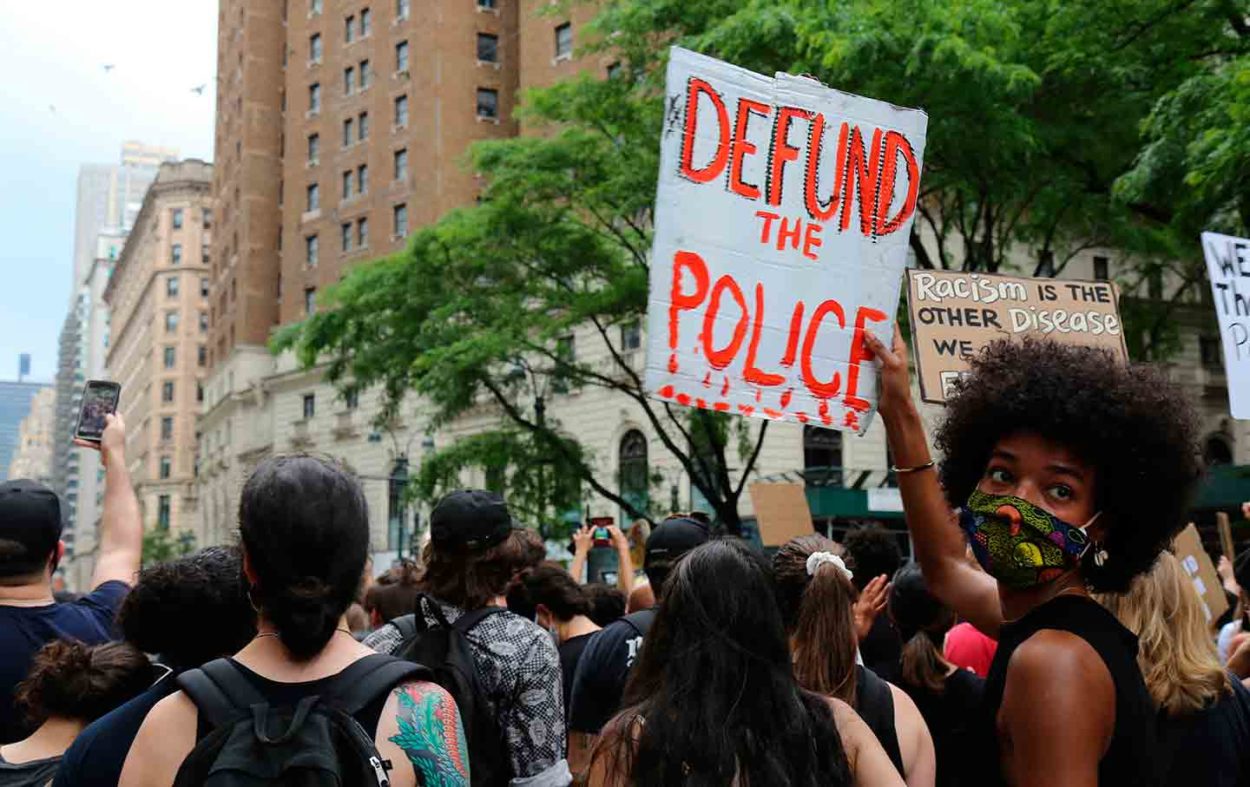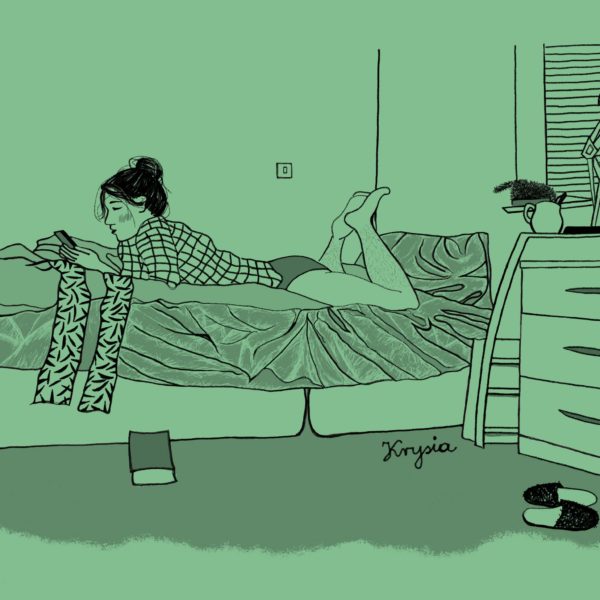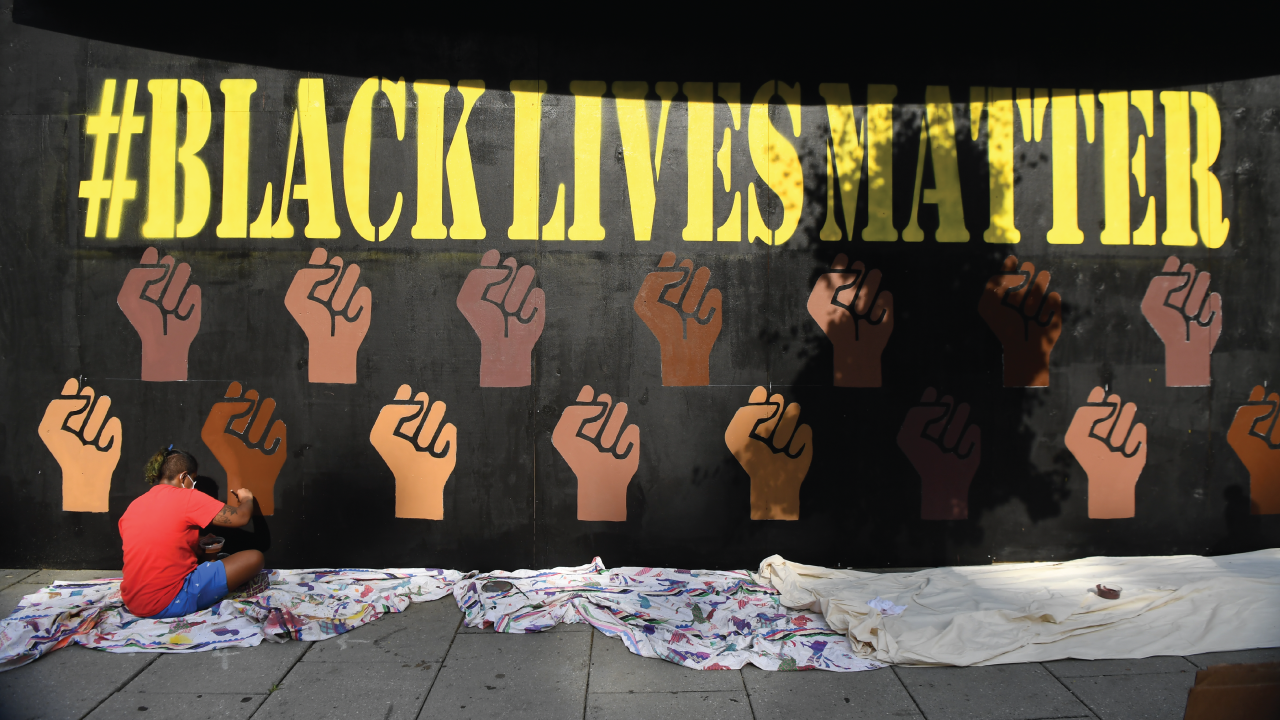Our Political Editor, Caitlin Flavell puts together a compelling and informative case as to why the police should be abolished: “The world has watched in horror over the last few days as the police in America have responded to protests – protests demanding that the police be held accountable for their actions – with an outpouring of violence and hatred…”

Abolish the Police
The world has watched in horror over the last few days as the police in America have responded to protests – protests demanding that the police be held accountable for their actions – with an outpouring of violence and hatred. The brutality displayed by police officers in every city in the US over the last few days has left us questioning whether reform is truly possible.
It’s difficult for many, especially white people, to imagine a world without police officers. We spend a lot of time venerating and valorising their profession in the same way we lift up firefighters and doctors. But the police are a relatively recent invention, and they are not necessary to the functioning of our society.
Minneapolis City Council is considering disbanding their police department altogether.
Hence, I would like to support them in arguing that the police should not exist.
Since its inception, the police force has struggled with racism, sexism and homophobia. I use the word struggled wrongly here – efforts to make reform have been minimal, beyond inviting those from underrepresented backgrounds to join the police and maybe putting on some training. What researcher Robert Reiner describes as “cop culture” – the relationship that police officers have with each other and the world at large – has racism, sexism and homophobia at its core. It is not a demon that the police force is doing battle with. It is part of the glue holding the police force together.
This is most obvious in the consistent targeting of people of colour, especially black people, in the UK. Possibly the most high-profile instance of this was the racially-motivated murder of Stephen Lawrence in 1993, the perpetrator of which went free due to mistakes and potentially even outright malice on the part of the officers investigating.
An investigation into the incident found in 1999 that the police in the UK were ‘institutionally racist’, defined as the “collective failure of an organisation to provide an appropriate and professional service to people because of their colour, culture or ethnic origin.” (see 6.34). The report made over 70 recommendations, including increasing the power of inspection bodies and that the police recruit more diversely. All police officers should be given training in racism awareness.
The use of the phrase ‘institutionally racist’ was, at the time, incendiary. It would later be used again to describe the circumstances that led to the deaths in Grenfell Tower. Whilst this phrase mobilised attempts at reform by the police, it is questionable how much progress has been made in the last 20 years.
Between 1990 and 2009, black people were twice as likely to die in police custody when compared to white people. There are no statistics for 2010-2017, but between 2017 and 2019, black people made up a third of the total number of people who died whilst in police custody. The Lammy Review in 2017 found that black people were five times as likely to have force used against them compared to white people. A quarter of the prison population was from a BAME background – half in youth institutions. In total, 1741 people have died in police custody or following contact with the police since 1990, but the last time a police officer was convicted for killing someone was in 1969.
In 2011, police officers shot and killed Mark Duggan, a black man, and then claimed that he had shot at them first – a lie. They did not inform his family he was dead for 36 hours.
The lack of progress on this issue in the nearly 30 years since the death of Stephen Lawrence indicates just how intransigent racism is in the police force. Training has not eliminated racist bias in the police. Later research indicated a strong tendency towards both political and moral conservatism amongst police, and the cultivation of an us-vs-them mentality. In 2019, Stephen Lawrence’s mother said that progress in reforming these institutions had stagnated. In the US, these issues are even more exacerbated, with 88 black people killed by police so far in 2020 alone. The FBI openly admits that infiltration of police forces by white supremacists is a serious problem.
Some might even be as bold as to say that the police is an institution specifically aimed at upholding the divides in our society and oppressing the already-downtrodden.
Attempts at reform that require more funding being diverted to the police – the concept of ‘community policing’, the training in racism awareness, the use of body cameras in the US – have proved ineffective. On the other hand, when the police in New York went on strike (to prove that they were indispensable), crime went down. The police no longer regulate the community – they enforce the status quo, at the expense of people’s lives and freedom.
Hence, the suggestion to defund the institution.
How much do the police actually contribute to keeping us safe? In 2019, figures showed that only 1.5% of reported rape cases were prosecuted – due to police traumatising victims to the point of dropping their accusations. Police officers are more likely to be reported as perpetrating domestic abuse, and less likely to be investigated for doing so. In Canada this week, two women were killed in separate incidents that started as ‘wellness checks’.
Are we really happy to continue to let our taxes be diverted from causes like healthcare or education towards the protection of private property, especially of large corporations? In a society where we are increasingly subjected to surveillance from all fronts, do we want further surveillance from a notoriously paternalistic institution? There are many alternatives to policing that are more effective in protecting all members of our community.
The people who respond to crises in our communities should be the people best-equipped to deal with those crises, rather than those prepared to respond with violence and detention. Instead of locking the drunk and disorderly in a cell for the night, trained responders or medical professionals could take them to a safe place for the night. The homeless should be offered somewhere safe to stay, not harassed. Experts in trauma and crisis intervention can work to get victims of domestic violence to a safe place, rather than a confrontation with an institution that is equally likely to victimise them.
Anyone suffering a mental health crisis deserves attention from a medical professional, not a police officer. ‘Wellness checks’ do not need to be carried out by people with the power to detain anyone, but instead by people empowered to help.
To be clear, even if the police demonstrated any effectiveness in protecting communities, the cost – black and brown lives – is too high. For many, the police represent fear, violence, and surveillance, and if you implicitly trust the police to protect you, it is time to acknowledge that that is a privilege. Defund the police. Use the money to fund services that help people. Tear down institutions that fuel racism.
Caitlin Flavell, Political Editor
Header image: Ragan Clark / AP Photo



Leave a Comment